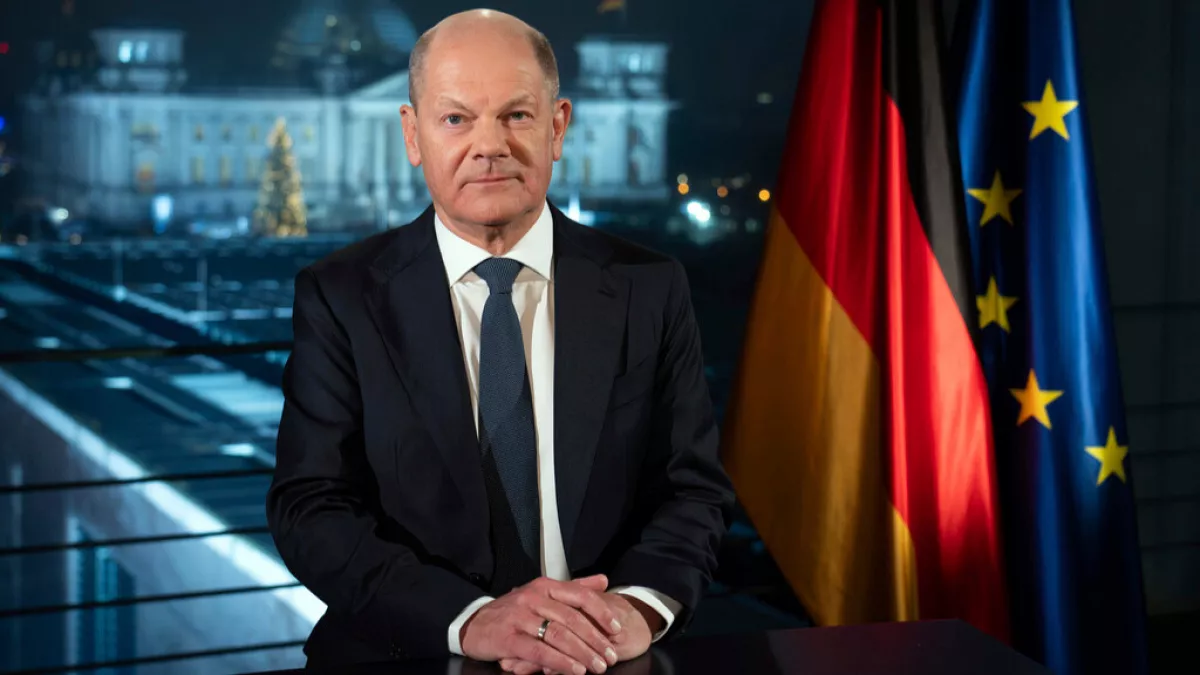
The German government released last Thursday, 17, a widered military aid package to Ukraine, reaffirming its role in supporting the country in the conflict against Russia.
According to the German Federal Council, the package includes an updated list of military equipment to be sent to Kiev, with a total amount of approximately 28 billion euros, which includes weapons and training for the Ukrainian forces.
Since the beginning of the war, in February 2022, Germany has removed about 5.2 billion euros from its own military inventory to assist the Ukrainian government.
In addition to the weapons, more than 10,000 Ukrainian soldiers underwent military training in German territory.
The new aid package includes a series of high performance military equipment. Armaments include MRAP-type armored vehicles (protected against mines and ambushes), leopard 2 ammunition, self-propelled anti-aircraft cannons, as well as missiles for Iris-T SLM air defense systems. The sending of self -propelled Obsesses Zuzana 2, 122 mm and 155 mm artillery projectiles, recognition and attack drones, robbery rifles and portable anti -trunks have also been confirmed.
At a meeting of the contact group for Ukraine in Brussels, Germany’s Minister of Defense, Boris Pistorius, announced new commitments to 2025, including the donation of four additional Iris-T air defense systems, 300 guided missiles, 100 land surveillance radars, 100,000 artillery projectiles and 25 Mader infantry vehicles.
Possible rupture in long -range weaponry policy
Germany’s most significant announcement was the suggestion of a possible change of posture on the sending of Taurus cruise missiles, with a range of up to 500 km to Ukraine. This change was nominated by Chancellor Elected Friedrich Merz in an interview with ARD broadcaster last Sunday. Sending the Taurus missiles would rupture a break with the policy adopted by former Chancellor Olaf Scholz, who constantly rejected the Ukrainian requests for long-range weapons, arguing that this could lead to a dangerous climb in the conflict.
If the decision is confirmed, Germany would begin to provide armaments with the ability to reach in depth targets in the Russian territory, which could significantly alter the strategic calculation of the conflict. The measure generated immediate reactions, including a warning from Russia’s Ministry of Foreign Affairs. Maria Zakharova, a spokesman for the Russian ministry, said that any attack with Russian target cruise missiles, involving Bundeswehr support, would be considered a direct involvement of Germany in military operations.
Internal debate on the new posture
Within German politics, Merz’s proposal generated debate. Matthias Miersch, leader of the Social Democratic Party (SPD), indicated that the decision on the Taurus missiles should be reevaluated based on more detailed intelligence information. “I hope the new chancellor, once fully informed by the agencies [de inteligência]reassess the question clearly, ”said Miersch, emphasizing the need for careful analysis of the impacts of this decision.
This change in weaponry policy, if confirmed, would be the first time Germany would provide weapons capable of reaching targets within the Russian territory. Experts point out that this could have profound consequences for international relations and the dynamics of conflict, raising tensions between Germany, Russia and the other NATO members.
Geopolitical context and internal pressure
Germany’s new posture occurs in a volatile geopolitical context. The pressure on Western allies to intensify military support to Ukraine has increased, especially as the conflict extends. With the growing uncertainty about the continuity of US support under a possible presidency of Donald Trump, countries such as Germany and France have sought to take more active leadership in helping Ukraine, including in the sending of heavy weapons and advanced defense systems.
Germany has faced increasing pressure to provide more effective means of defense to Ukraine, including long-range weapons, to improve the country’s counterattack capacity. In parallel, Russia’s pressure on Western countries has increased, with Moscow threatening reprisals if long -range armaments are sent to Ukraine.
Impacts and future perspectives
The decision on the sending of Taurus missiles to Ukraine has the potential to change the course of conflict and redefine Germany’s role in the international scene. If Merz confirms the delivery of missiles, this can mark a historical change in Germany’s military stance, with significant implications for the relationship between Germany and Russia, as well as the dynamics of power at NATO.
The measure also reflects Germany’s growing strategic realignment regarding its foreign policy, especially in the context of an uncertain international scenario. The future of European support to Ukraine and Germany’s position as a leader in providing long -range weapons will be determinant for the course of the war and the configuration of international alliances in the coming years.
Source: https://www.ocafezinho.com/2025/04/21/alemanha-anuncia-novo-pacote-de-ajuda-militar-a-ucrania-e-cogita-envio-de-misseis-taurus/

